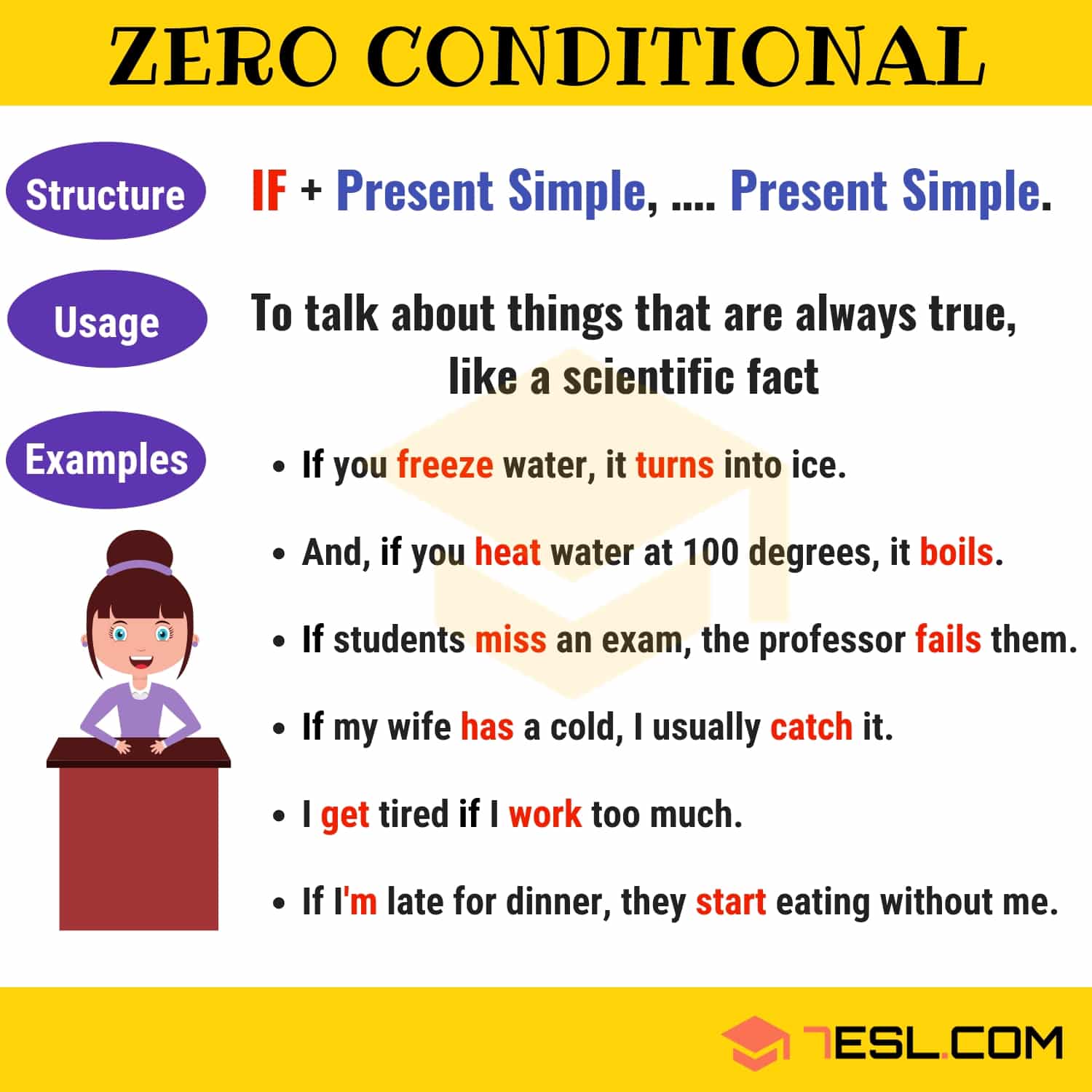
The Zero Conditional Definition, Useful Rules and Examples Efortless
Zero Conditional Examples. Zero conditional sentences state known facts, general truths, and things that regularly occur.. The subordinate clause (sometimes referred to as the if-clause) and main clause are usually in the simple present tense.. If you go to bed late, you are grumpy in the morning.You are grumpy in the morning if you go to bed late.. The word when can also be used with these.

Conditional sentences type 0,1,2,3, Brief explanation and exercises
20 Zero Conditional Sentences Examples, If Clauses Type Zero Conditionals Type 0 Conditionals Type 0 in Conditionals sentences, which has four levels in total, can be accepted as the first level in these grammar topics. This topic, also known as If Clause Type 0, consists of a subordinate clause and the main clause. While the sentence that starts with "if" acts as a subordinate clause, the.
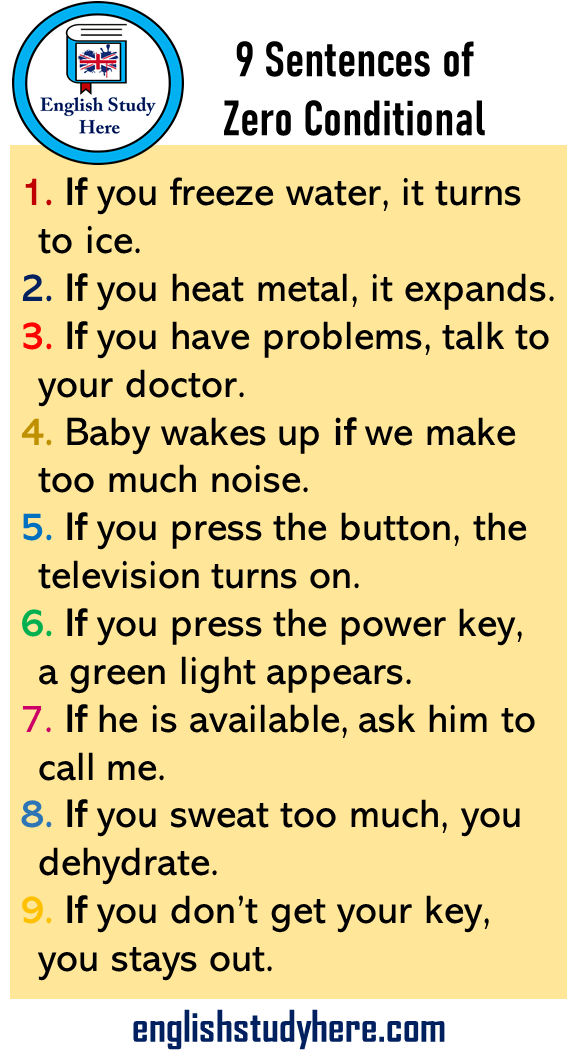
9 Sentences of Zero Conditional, Type 0 English Study Here
Do you want to speak better English? Then you need to master the conditionals, a type of sentence that expresses a possible or hypothetical situation and its consequences. Perfect English Grammar has clear explanations and lots of practice exercises for the first, second, third and zero conditionals, as well as mixed conditionals and other variations. Learn how to use conditionals correctly.

Zero Conditional English Conditionals English Grammar 7 E S L
In zero conditional sentences, the tense in both parts of the sentence is the simple present. This conditional is used when the result will always happen. So, if water reaches 100 degrees, it always boils. It's a fact. I'm talking in general, not about one particular situation. The result of the 'if clause' is always the main clause.

English Grammar Lesson Conditionals Type 0 / Zero conditional
How is the zero conditional sentence (if-clause type 0) formed?Fundamentally, a conditional sentence always consists of two clauses. One of them (the subordinate clause) usually starts with the word ' if ' (or as mentioned above, with ' when ' or ' whenever ') and specifies the condition while the other one (the main clause) returns the result.It does not matter which of the two.
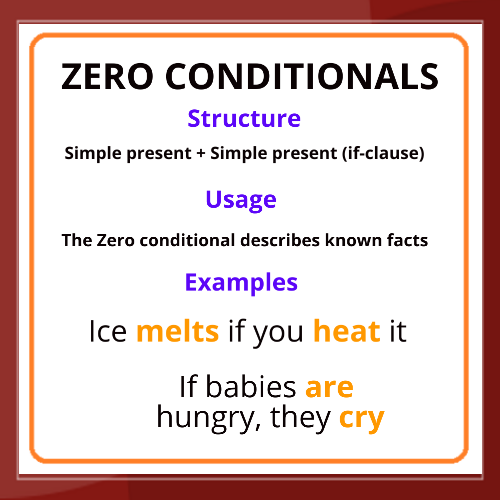
The Zero Conditional Simple explanation with examples MyDuoTraining
To put things in perspective, let's see some examples: If it rains, the floor gets wet. > in this example the main clause "the floor gets wet" is always the result of the if clause "if it rains". How to use conditional type zero. To make a conditional type zero sentence we use the present simple verbs in both of clause and main clause.
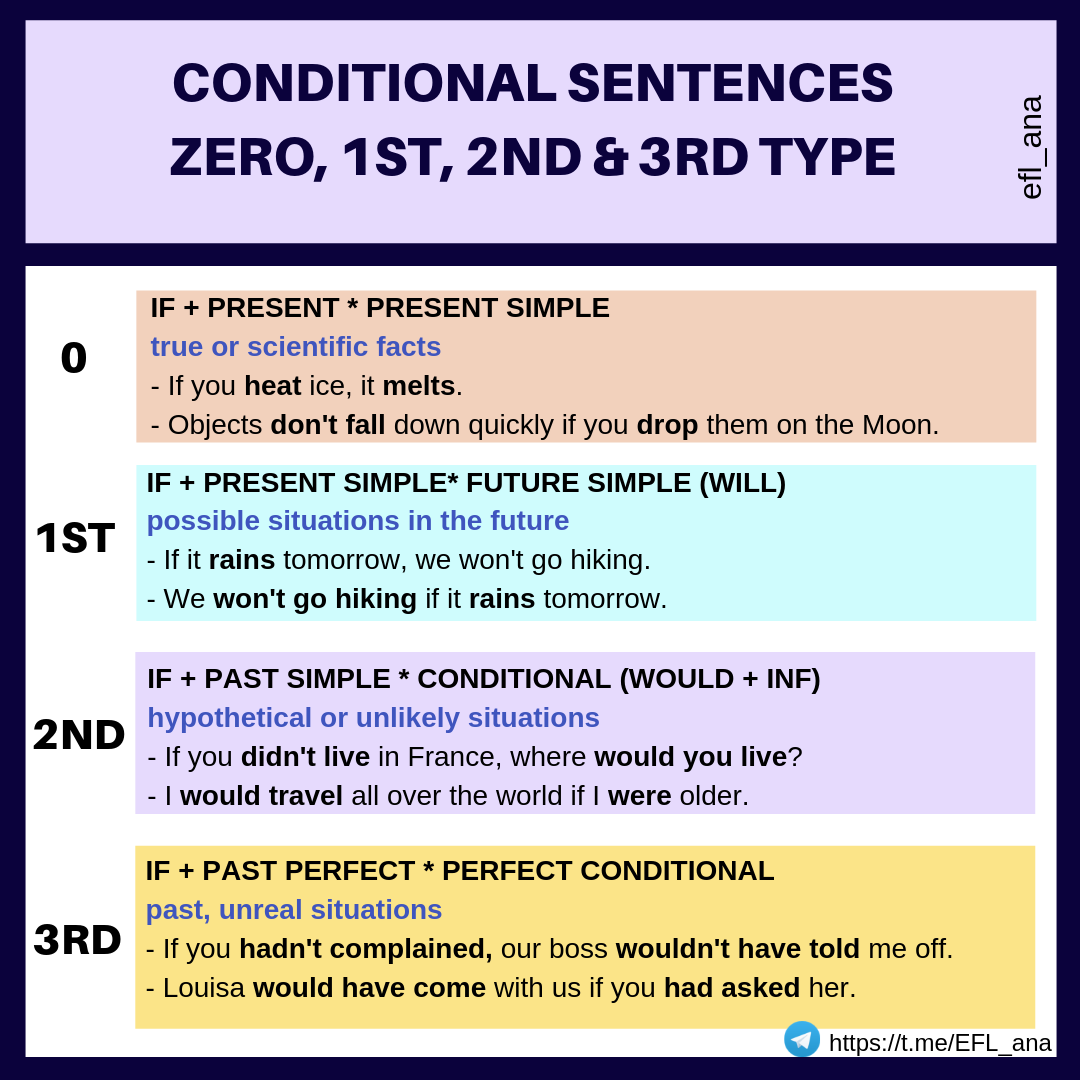
Ana's ESL blog Conditional sentences in English
Explore conditional sentence examples to see how "if" and "then" go hand-in-hand. If one thing happens and another follows, it's a conditional sentence.. Zero conditionals, also known as Type 0 conditionals, outline situations in which one thing always causes. This type of conditional sentence indicates that "if" something would.
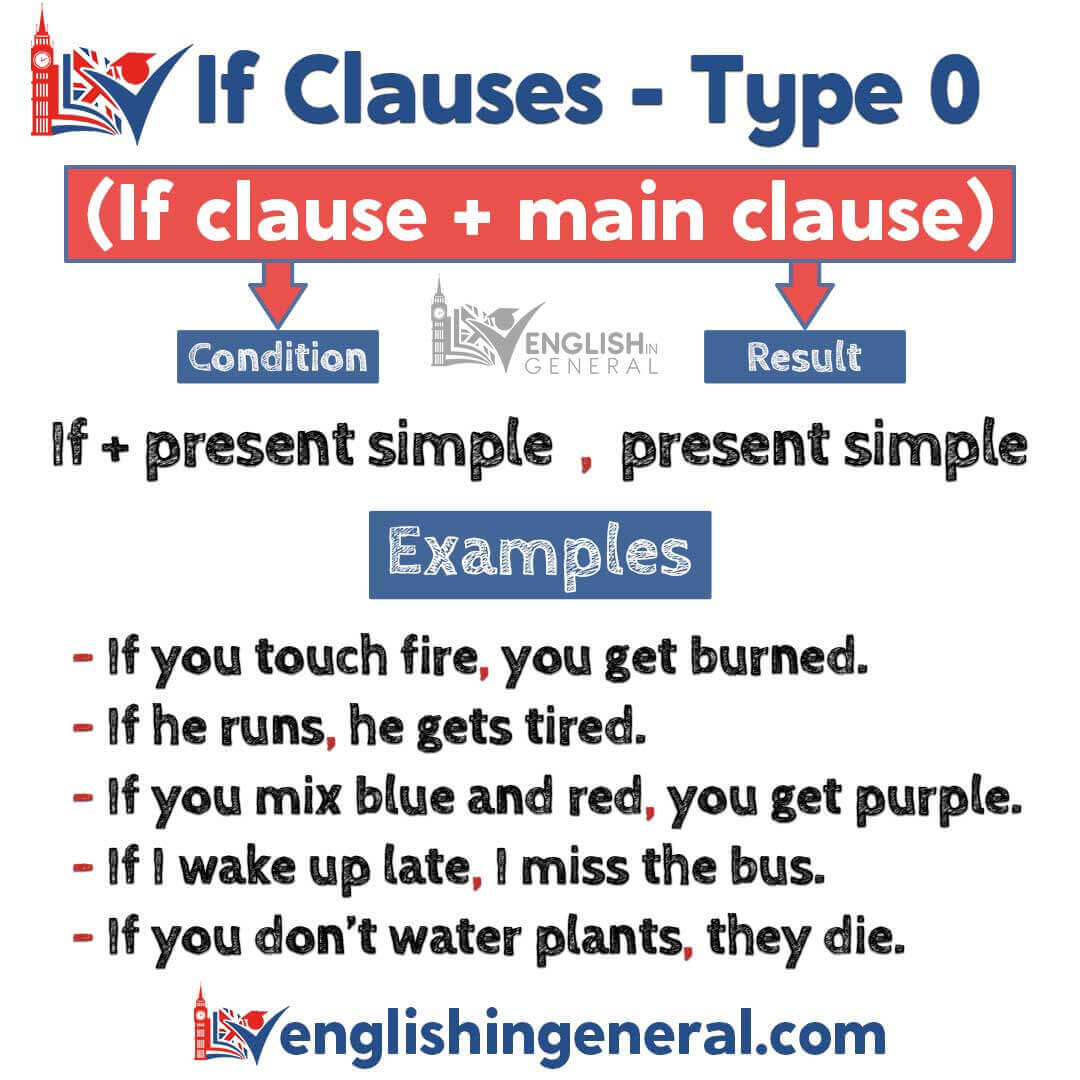
Zero conditional sentence (ifsentence type 0) English in General
Examples: Type 2 mixed conditional sentences If you paid attention in school, you would have learned more. I would have invited you if I knew you were free. Common mistake: Adding "would" to the "if" clause. When using conditional sentences, people sometimes add the modal verb "would" to the subordinate clause. While "would" is.

10 Examples of zero conditional sentences EnglishTeachoo
Zero Conditional Sentence Structure Form. In order to form a zero conditional, you need to construct the sentences in two parts. These two parts of the sentences are: The "If" clause; The "main" clause; We use this format to form type 0 conditional sentences:

Conditional Sentences Type 0 English Study Here
Form In zero conditional sentences, the tense in both parts of the sentence is the simple present.
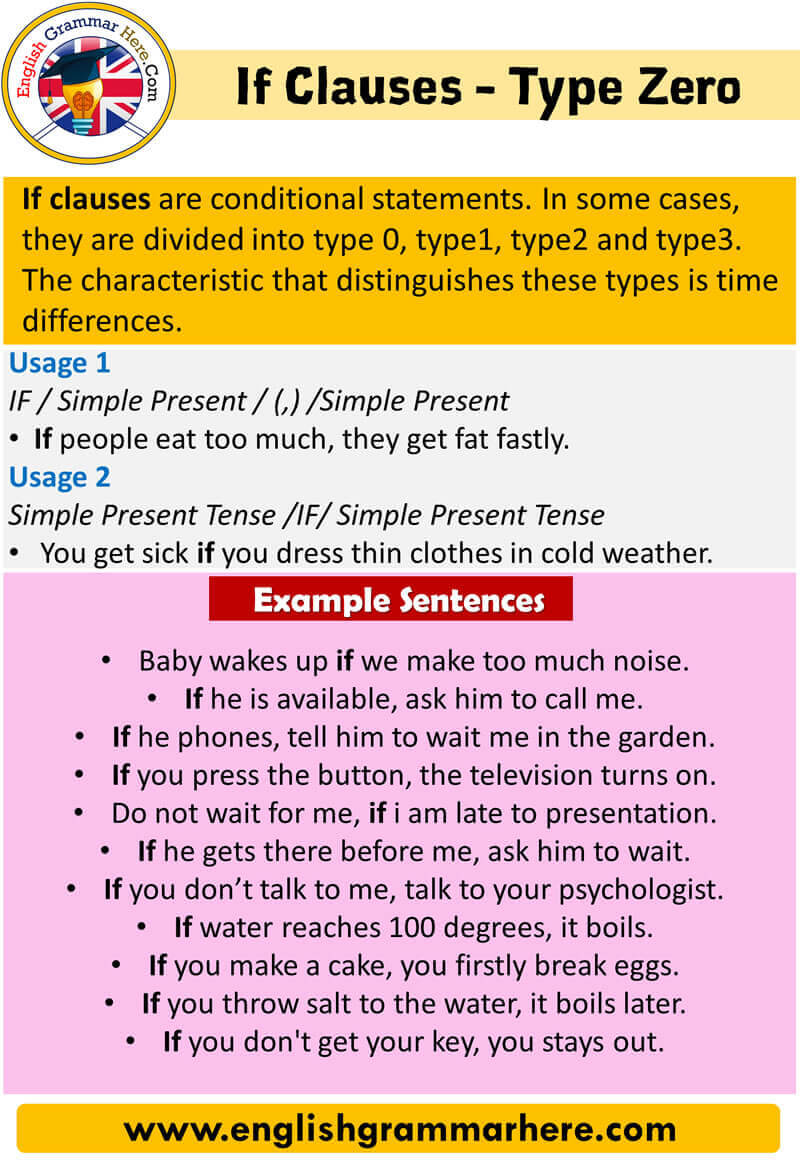
If Clauses Type 0, Zero Conditional English Grammar Here
Here is another example of a zero conditional sentence: When you subscribe to the website, you receive a monthly email newsletter. While the statement is not a scientific fact, this statement is always true because it might be a company policy. You can even use zero conditional to relay instructions. Just use the imperative form for the main.

Conditional sentences type 0, 1 English ESL worksheets pdf & doc
Conditional sentences. There are four basic types of conditional sentences in English. Zero conditional (type 0): I take my umbrella if it rains. First conditional (type 1): I'll call you if I work late. Second conditional (type 2): If the bus didn't arrive on time, I would drive you to the airport.

10 Zero Conditional Sentences Examples, If Clauses Type Zero English
Tense - Both clauses in zero conditional sentences are written in the simple present tense, which, logically, is used to describe commonly known facts and repeated actions that take place regularly (e.g., "The bus to New York departs every half hour").; Order - You can often switch the order of the "if clause" and the "main clause" without changing the meaning of the sentence.

Conditionals Archives English Study Here
It is also a fact, shown by using a type 0 conditional sentence. Like any other conditional sentence, a type zero conditional sentence also has two clauses: a condition clause and a result clause. Here, the verb or verb phrases of both the clauses use the Simple Present tense. The condition starts with either 'if' or 'when'.
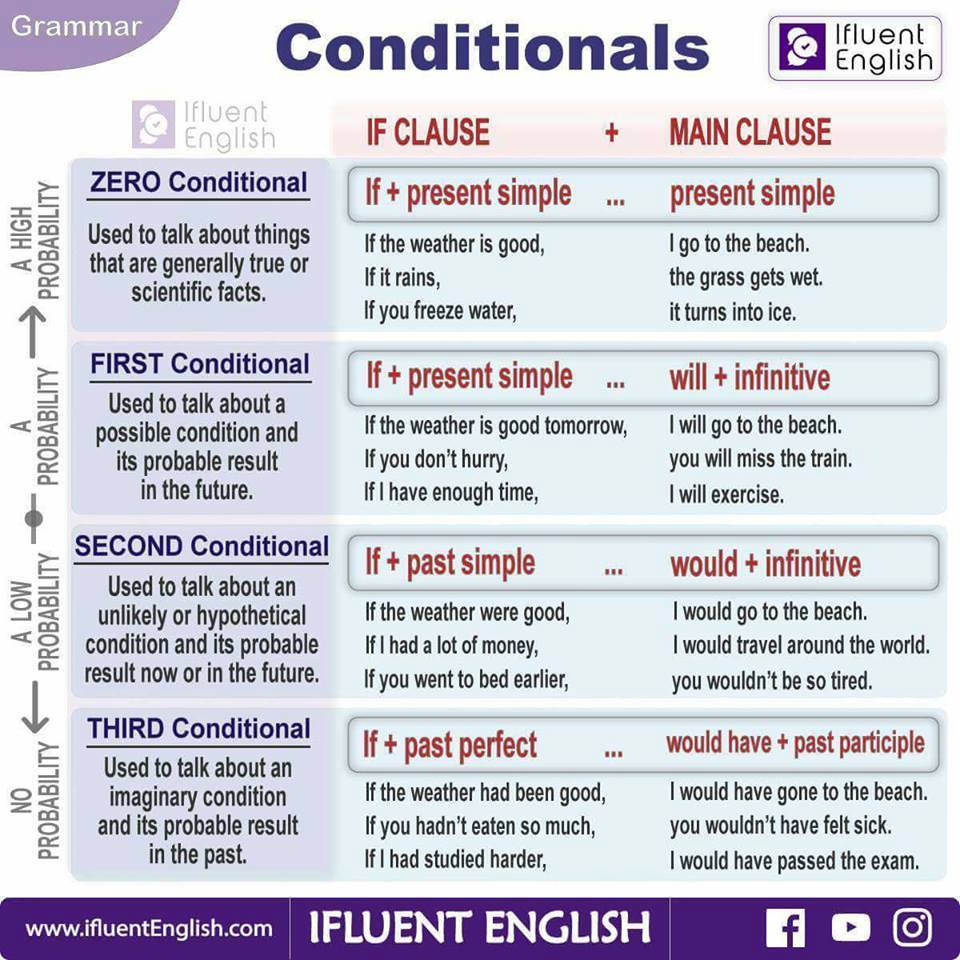
Click on IF... (Conditional sentences)
The 'if' in this conditional can usually be replaced by 'when' without changing the meaning. For example: If water reaches 100 degrees, it boils. (It is always true, there can't be a different result sometimes). If I eat peanuts, I am sick. (This is true only for me, maybe, not for everyone, but it's still true that I'm sick every time I eat.
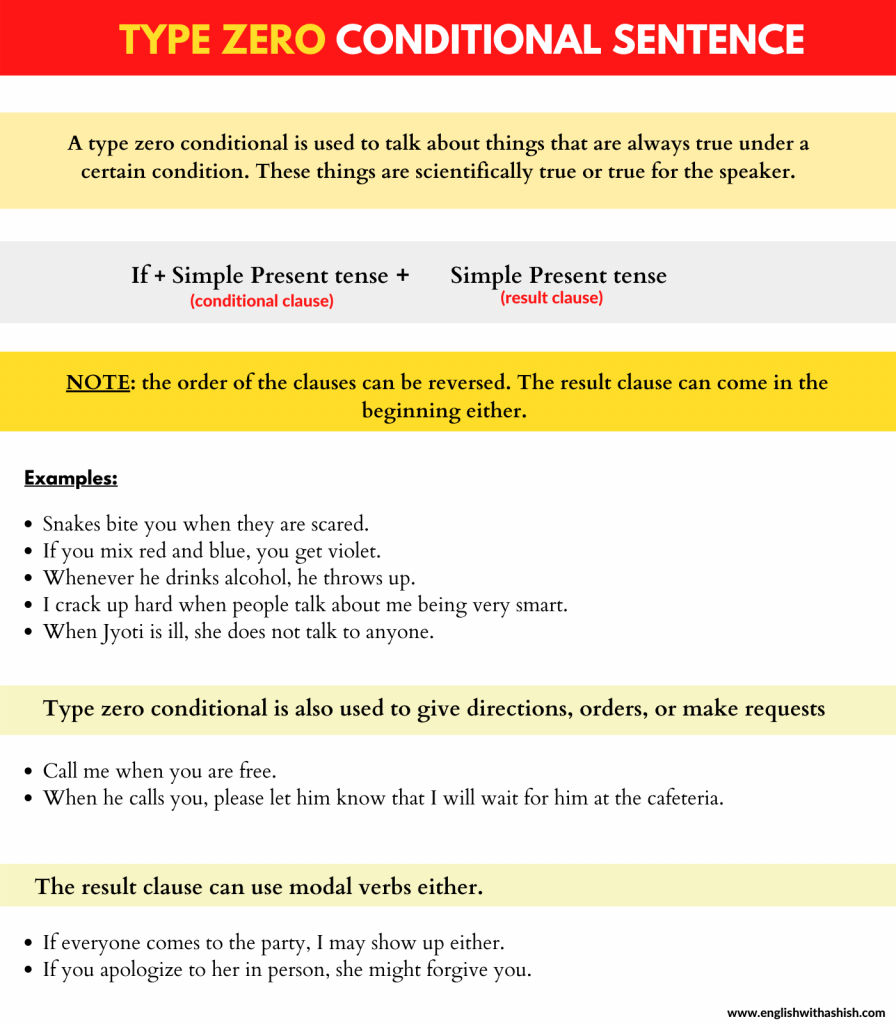
Type zero conditional sentence English With Ashish
1) By definition, a second conditional only talks about unreal events in the present or future. That said, you can certainly use past tenses to refer to real past events. Both sentences A and C are correct, for example, assuming the traveling to different cities was something the speaker did regularly. Sentence B doesn't make sense to me.